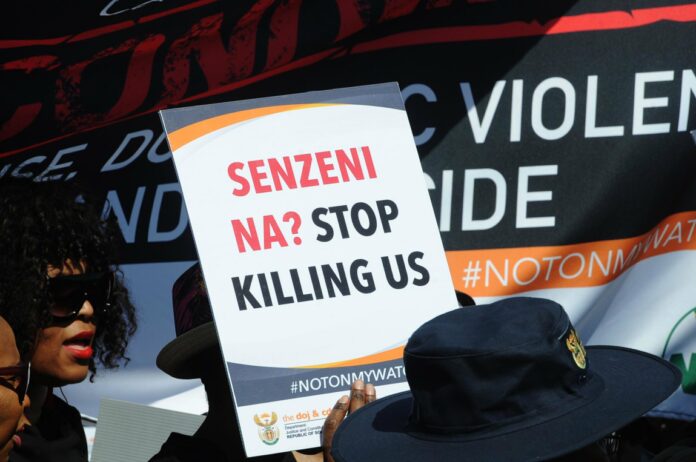For those many women who survive GBV, and particularly intimate partner violence (IPV), shelters are an important safe space. They provide a space with resources and services that are meant to empower survivors to leave their abusive relationships and rebuild their lives. However, funding remains a huge stumbling block for the provisions of these resources and services. This was the focus of Leandrie Minnie’s masters research. Minnie recently obtained her master’s degree in Political Science at Stellenbosch University.
In August, the minister of police, Bheki Cele presented the country’s latest crime statistics. The statistics showed that the rate of violent crimes is amongst the highest in the world. The crimes contribute to widespread insecurity and heightened fear in all sectors of the population. Gender-based violence remains at the top of the list. The lack of suitable, supportive services for survivors of GBV contributes to a vicious cycle of violence.
RELATED:
Map of GBV shelters in South Africa
For those many women who survive GBV, and particularly intimate partner violence (IPV), shelters are an important safe space. They provide a space with resources and services that are meant to empower survivors to leave their abusive relationships and rebuild their lives. However, funding remains a huge stumbling block for the provisions of these resources and services. Minnie recently obtained her master’s degree in Political Science at Stellenbosch University.
For her study, Minnie compared the resource and service provision at a government-funded shelter with that of a privately funded shelter in Cape Town. This was to understand the tangible difference between them in terms of empowering survivors of GBV and intimate partner violence (IPV). She interviewed managers and social workers at the two shelters and asked women staying there to complete a questionnaire on how they perceive the services offered to them.
Minnie said both the manager and social worker at the state-funded shelter said they had to adhere to certain guidelines to remain eligible for government funding. These guidelines focused on amongst other things on how long abused women stay and how many leave the shelter annually.
The Daily Vox spoke to 35-year-old Sandra* who has experienced living in both privately funded shelters and government owned shelters.
“I would say that living in the shelters with money (privately funded) is so much better. The treatment from the managers is also better. We would get food, toiletries and toys for our kids sometimes. I have a friend who even got a job at one of the shelters and she is off the street now,” said Sandra. She added: “Women at the shelters are also supported financially to pay the deposit for an apartment or house they want to rent.”
Minnie added that these shelters provided accommodation, food, toiletries, and hygiene products. The shelters also provide counselling, parental training, skills development, employment, and legal and medical services.
RELATED:
#LGBQTILife: We need to be advocating for more inclusive shelters
“The government ones can have terrible service sometimes. The managers are under pressure and hardly have resources. You can wait months to get placed and even when you do, they give you a short time to stay.We are still grateful because the services we receive are free of charge now. Some of them are trying their best,” said Sandra.
There are many women like Sandra who struggle to better their lives after having received help from shelters. Perhaps the question lies in whether the government is doing enough.
READ MORE:
The role social workers play in fighting gender-based violence
Minnie says staff at both shelters spoke about how they must consistently advocate on behalf of the women and come up with individualised intervention strategies that cater to the needs of each survivor.
“They try to support all the women to the best of their ability. [This could ] be by accompanying them to the police station to file a protection order or helping them have their children’s school fees waived due to the change in their circumstances.”
She added that women at both shelters found the resources and services helpful.
Minnie calls on the government to amend the limitation on the time abused women can stay at state-funded shelters. “Government should also implement a more diverse Victim Empowerment Programme that can help these women become financially independent and have suitable accommodation to completely break free from abusive relationships.”
*Name changed on request from the person.









